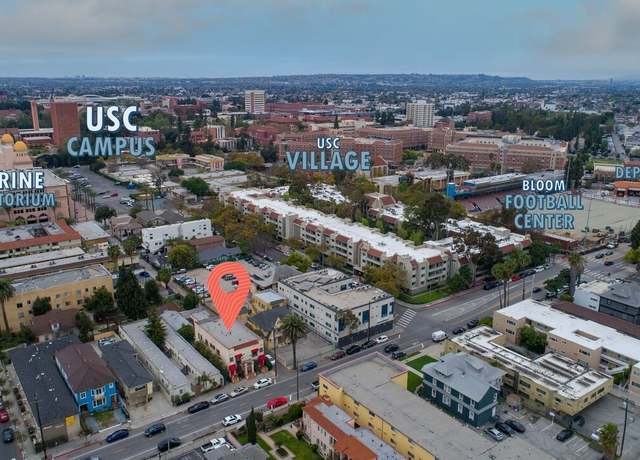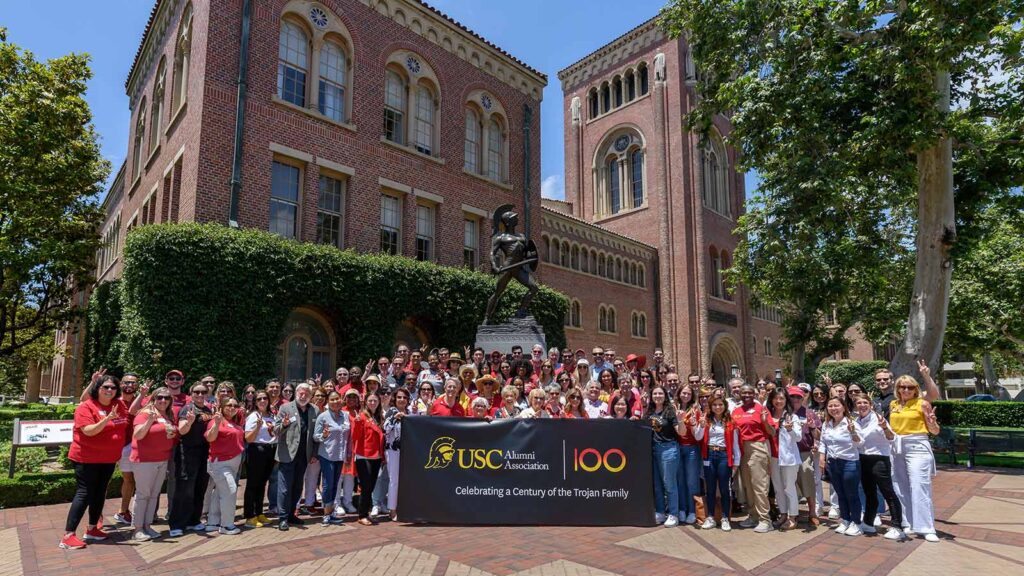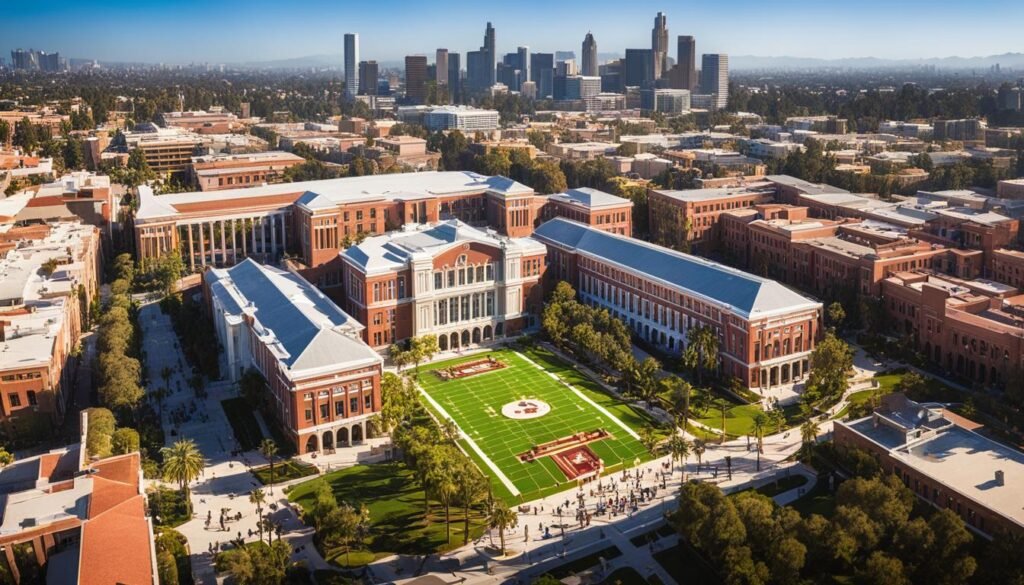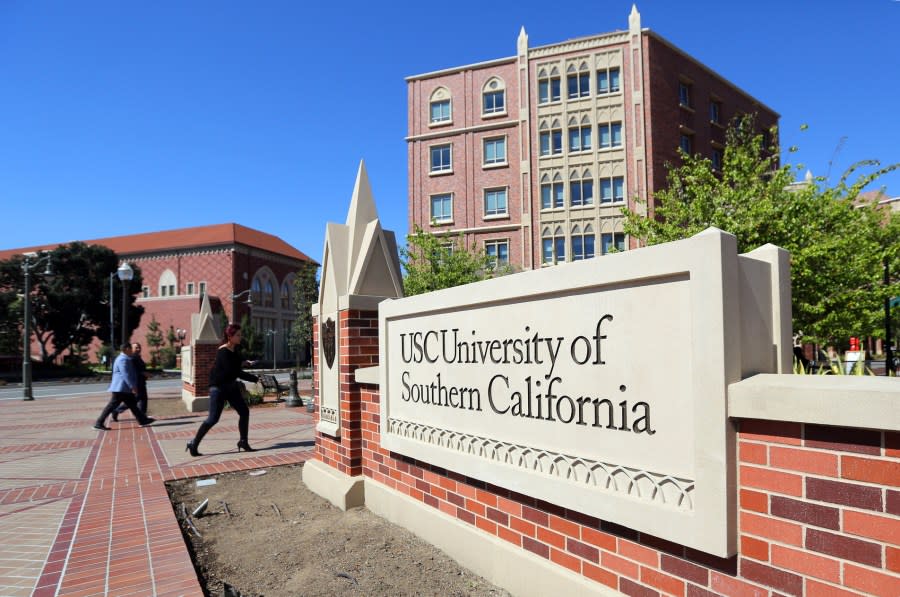Choosing the right university is a major life decision that can shape a student’s future in profound ways. With countless institutions offering various strengths, it’s essential to identify a university that aligns with academic, professional, and personal goals. The University of Southern California (USC) stands out as one of the premier private research universities in the United States. Located in the heart of Los Angeles, USC offers a blend of academic excellence, industry connectivity, cutting-edge research, and a vibrant campus life that is unmatched in many respects.
USC has cultivated a reputation not only for its prestigious programs and renowned faculty but also for its commitment to innovation, diversity, and community engagement. This article delves deep into the unique advantages of studying at USC—offering prospective students and families a comprehensive understanding of what makes the Trojan experience so valuable.
Key Takeaways
- Academic Breadth and Depth: USC offers over 150 majors and world-renowned faculty across disciplines.
- Strategic LA Location: Access to internships and jobs in tech, media, entertainment, and more.
- Career Services: Comprehensive support with counseling, networking events, and job placement.
- Global Alumni Network: One of the largest and most active alumni communities in the world.
- Research Excellence: Opportunities to work on cutting-edge projects across interdisciplinary domains.
- Diverse Campus Life: Over 1,000 student organizations and inclusive support systems.
- Commitment to Inclusion: Resources dedicated to supporting students from all backgrounds.
University of Southern California

Academic Excellence and Interdisciplinary Opportunities
A Broad Range of Programs
At the heart of USC’s academic reputation lies its diverse and expansive array of programs. With over 150 undergraduate majors and more than 200 graduate and professional programs, students can explore nearly any area of interest or specialization. Whether your passion lies in neuroscience, entrepreneurship, film production, political science, or artificial intelligence, USC offers an academic path tailored to your ambitions.
Key schools and colleges that shape USC’s academic framework include:
- USC Marshall School of Business – Known for its focus on entrepreneurship, international business, and strategic leadership.
- USC Viterbi School of Engineering – Renowned for programs in computer science, biomedical engineering, and sustainability.
- USC School of Cinematic Arts – One of the top-ranked film schools globally, offering hands-on experience in all aspects of storytelling and production.
- USC Annenberg School for Communication and Journalism – A leader in communication studies, media innovation, and public relations.
- USC Dornsife College of Letters, Arts, and Sciences – The university’s liberal arts hub, offering majors in the humanities, social sciences, and natural sciences.
This breadth enables students to personalize their academic journey, explore multiple disciplines, and graduate with a versatile skill set.
Interdisciplinary Learning
One of USC’s most progressive academic strengths is its cross-disciplinary approach to education. The university encourages students to explore connections between fields, allowing for dynamic course combinations that reflect the complexities of the real world.
For instance:
- A student majoring in computer science may take electives in cinematic arts to develop video game design skills.
- A biology major can explore public policy to understand health advocacy and reform.
- An engineering student can enroll in entrepreneurship classes through the Greif Center to develop business acumen.
This flexible structure is especially evident in unique programs like the Iovine and Young Academy, which integrates design, business, and technology for students driven by innovation and startup culture. The academy fosters a studio-based learning model that prioritizes hands-on projects and real-world problem solving.
This commitment to interdisciplinary collaboration empowers students to think creatively, solve complex problems, and adapt to multiple industries—a crucial advantage in today’s evolving job market.
Renowned Faculty and Personalized Mentorship
USC’s academic excellence is driven by its world-class faculty. Among them are:
- Nobel Prize winners
- Pulitzer Prize recipients
- National Academy members
- MacArthur Fellows (“Genius Grant” recipients)
These faculty members are not just researchers—they are passionate educators who prioritize mentorship. Many maintain open-door policies, provide personalized academic guidance, and involve students in cutting-edge research projects.
Whether in a lecture hall, a research lab, or a one-on-one mentorship session, USC faculty help students reach their full academic potential and develop a lifelong love of learning.
Prime Location in Los Angeles

Access to Industry Hubs
Located in the heart of Los Angeles, USC benefits from being in one of the most dynamic and influential cities in the world. LA is not only the global capital of entertainment but also a major hub for:
- Technology and Innovation
- Media and Journalism
- Healthcare and Biotech
- Fashion and Design
- Finance and International Trade
This strategic location translates into direct, real-world access for students to internships, co-ops, and career placements with some of the most recognizable names in global business.
Key examples include:
- Film and TV: Warner Bros., Disney, Netflix, Universal Pictures
- Tech and Startups: Google LA, Snap Inc., SpaceX, Silicon Beach startups
- Healthcare: Cedars-Sinai, UCLA Medical Center, USC Keck Medicine
- Business: Deloitte, KPMG, PwC, and a range of global consulting firms
- Media: The Los Angeles Times, ABC, FOX, NBC, and digital media outlets
Being in proximity to these organizations allows students to apply classroom concepts in real-world settings, build professional networks early, and often secure post-graduation offers based on their internship performance.
Cultural and Social Advantages
Los Angeles is one of the most culturally diverse cities in the United States, with residents from more than 140 countries speaking over 220 languages. For USC students, this cultural richness offers an immersive environment where global perspectives are not just studied—they’re lived.
Highlights of student life in LA include:
- World-class museums and galleries: The Getty Center, LACMA, MOCA
- Music and performance: Hollywood Bowl, Walt Disney Concert Hall
- Cuisine from every continent: From food trucks to Michelin-starred dining
- Outdoor activities: Beaches, hiking in Griffith Park, skiing in Big Bear
Students enjoy access to these experiences through student discount programs, university-sponsored excursions, and cultural festivals. The vibrancy of LA enhances the educational journey and encourages students to engage with the city as an extension of the classroom.
Powerful Career Services and Internship Support
Career Development Services
USC is committed to helping students not only graduate but also transition confidently into the workforce. Its Career Center is nationally recognized for offering comprehensive support that addresses every stage of career development.
Key services include:
- One-on-One Career Counseling: Personalized sessions to explore career paths, job search strategies, and personal branding.
- Resume and Cover Letter Reviews: Tailored feedback to help students craft competitive application materials.
- Mock Interviews and Practice Sessions: Students can simulate real-world interviews with feedback from advisors and employers.
- Workshops and Employer Info Sessions: Topics range from negotiating salary to leveraging LinkedIn and networking etiquette.
- Career Fairs and Industry Panels: Over 100 events annually, attracting employers from industries such as tech, media, healthcare, and consulting.
Additionally, USC’s Handshake platform connects students to thousands of job and internship listings tailored to their skills and career goals.
Internship Opportunities
USC’s location and prestige mean students have access to top-tier internships in virtually every industry. Internship participation is strongly encouraged—even built into the curriculum of many programs—giving students a chance to:
- Apply theoretical knowledge in practical settings.
- Build confidence in professional environments.
- Gain clarity about long-term career goals.
- Network with industry professionals who often become future colleagues or mentors.
Types of internships USC students commonly pursue include:
- Business and Consulting: At firms like Accenture, Goldman Sachs, and EY
- Engineering and Computer Science: Internships at Google, Microsoft, IBM, and local startups
- Entertainment and Media: Roles in screenwriting, production, and marketing with major studios and indie firms
- Public Policy and Government: Positions in local government, law firms, and think tanks
- Healthcare and Research: Lab positions at Keck School of Medicine, Children’s Hospital LA, and Cedars-Sinai
Many internships are paid and can be pursued during summer, the academic year, or even remotely. The university’s strong relationships with recruiters mean USC students often stand out in applicant pools, and internships frequently lead to full-time job offers.
Global Alumni Network

A Lifelong Trojan Family
One of USC’s most powerful and enduring assets is its global alumni network, affectionately known as the Trojan Family. With more than 450,000 alumni spread across the globe, this network isn’t just about maintaining ties to one’s alma mater—it’s an active, engaged, and highly influential community that plays a significant role in shaping the professional and personal lives of current students and graduates alike.
Mentorship and Career Advancement
What sets the Trojan Family apart is the deep sense of loyalty and support that alumni extend to one another. This spirit of connection means that:
- Students can tap into a vast pool of mentors from day one. Alumni frequently participate in mentoring programs, offering guidance on everything from course selection to career planning.
- Job referrals and networking opportunities are abundant. Many USC graduates in leadership positions are eager to help fellow Trojans land internships, interviews, and jobs.
- Guest lectures and industry panels often feature prominent alumni, giving students exposure to real-world insights, professional connections, and even recruiting opportunities.
Whether you’re aiming for a job at a Fortune 500 company, starting your own business, or seeking advice on graduate school, chances are there’s a USC graduate who’s been in your shoes—and is willing to help.
Global Reach and Industry Presence
USC alumni hold influential positions across virtually every sector:
- Entertainment and Media: Executives at Netflix, Disney, and Paramount.
- Technology: Engineers and innovators at Google, Apple, Microsoft, and cutting-edge startups.
- Finance and Business: Leaders at firms like Goldman Sachs, Deloitte, and McKinsey & Company.
- Healthcare and Law: Researchers, physicians, and legal experts in top hospitals, universities, and firms.
The alumni chapters span continents, from New York to Shanghai to Dubai. These regional groups regularly host networking mixers, workshops, and social events that foster lifelong connections and open doors for career opportunities across borders.
Philanthropy and Giving Back
USC alumni are also known for their generous contributions to the university, both in time and resources. Many fund scholarships, sponsor student projects, support research initiatives, and return to campus as guest speakers or faculty. This continuous cycle of giving reinforces the Trojan Family ethos: “Once a Trojan, always a Trojan.”
Innovation and Research Excellence
A University at the Forefront of Innovation
USC is recognized as a leading research institution with a strong emphasis on interdisciplinary collaboration and real-world impact. The university’s motto, “Palmam qui meruit ferat” (“Let whoever earns the palm bear it”), is reflected in its dedication to rewarding innovation, inquiry, and excellence.
Cutting-Edge Research Across Disciplines
From the sciences and technology to the arts and humanities, USC offers students access to groundbreaking research opportunities. Major areas of focus include:
- Artificial Intelligence and Machine Learning: Through centers like the USC Information Sciences Institute and the Center for AI in Society, students explore applications in healthcare, robotics, ethics, and public policy.
- Biomedicine and Healthcare: At the Keck School of Medicine and the USC Norris Comprehensive Cancer Center, researchers work on life-saving treatments, gene therapy, neuroscience, and public health innovation.
- Sustainability and Climate Science: USC researchers investigate environmental challenges and develop solutions in renewable energy, water conservation, and climate resilience.
- Communication and Digital Media: At the Annenberg School for Communication and the School of Cinematic Arts, students push the boundaries of media theory, storytelling, virtual reality, and digital ethics.
These initiatives are supported by state-of-the-art laboratories, high-performance computing resources, and world-class faculty—many of whom are leaders in their fields.
Undergraduate Research Opportunities
Unlike many top-tier research universities that prioritize graduate students, USC strongly encourages undergraduate involvement in research. Through programs such as the Undergraduate Research Associates Program (URAP) and SURF (Summer Undergraduate Research Fund), students can:
- Design and conduct their own research projects under faculty mentorship.
- Receive funding to attend academic conferences or publish their findings.
- Work on real-world problems and contribute to global innovations even before graduation.
This early exposure to research not only sharpens academic skills but also helps students build strong applications for graduate school, medical school, or competitive job placements.
Interdisciplinary Collaboration: Where Ideas Converge
One of the most distinctive elements of USC’s innovation ecosystem is its emphasis on cross-disciplinary research. Some examples include:
- USC Viterbi School of Engineering + USC School of Cinematic Arts: Collaborations on immersive technologies like AR/VR, leading to breakthroughs in virtual storytelling, gaming, and digital content creation.
- Keck School of Medicine + USC School of Pharmacy: Partnerships in drug development, patient-centered care, and healthcare delivery models.
- Marshall School of Business + Iovine and Young Academy: Development of entrepreneurial ventures that blend design, business, and technology.
These collaborative institutes are housed within research hubs and innovation labs where students from diverse academic backgrounds work together on solutions to complex, real-world challenges. This integrated approach prepares students not just to thrive in their chosen fields, but to lead innovation across disciplines.
Entrepreneurship and Startups
In addition to research, USC fosters a strong entrepreneurial culture:
- USC Viterbi Startup Garage: A tech accelerator that supports student-led ventures with mentorship, funding, and workspace.
- Blackstone LaunchPad and the Greif Center for Entrepreneurial Studies: Resources to help students turn ideas into startups, scale their businesses, and access seed funding.
- Incubation and Pitch Competitions: Annual events like the USC Stevens Student Innovator Showcase give students the chance to present ideas to investors and compete for prizes.
From creating sustainable fashion brands to launching biotech innovations, USC students are empowered to transform ideas into impact.
Vibrant Campus Life

Diverse Student Organizations
One of the most enriching aspects of student life at the University of Southern California is the wide range of student-run organizations. With over 1,000 active groups, students can explore interests that span academics, the arts, culture, technology, service, politics, spirituality, and more.
These organizations provide students with opportunities to:
- Develop leadership skills by taking on executive roles within clubs.
- Build meaningful relationships with peers who share similar passions.
- Gain professional experience through industry-aligned clubs (e.g., consulting, robotics, business, journalism).
- Engage in cultural exchange through international student groups and identity-based organizations.
Whether you want to perform in a capella groups, build apps in coding clubs, volunteer with health outreach programs, or engage in model UN debates, there’s a place for everyone at USC. Popular organizations include the USC Helenes, the oldest all-female service organization on campus, and the Trojan Marching Band, a symbol of school pride.
These clubs regularly host events, competitions, workshops, and trips, giving students hands-on learning experiences beyond the classroom.
Signature Events and Traditions
USC’s campus calendar is packed with lively traditions and community-building events, such as:
- Homecoming Week: A festive week celebrating Trojan pride, featuring parades, concerts, tailgates, and sporting events.
- Springfest: A large student-organized music and arts festival that brings top performers to campus and celebrates student creativity.
- Welcome Experience and Trojan Family Weekend: Orientation and family engagement events that introduce new students and their families to campus life.
- Conquest: The pep rally before the rivalry football game with UCLA, marked by fireworks, music, and Trojan spirit.
These events cultivate a deep sense of belonging and help students feel integrated into the Trojan community.
Residential and Social Life
USC’s residential communities are intentionally designed to support students’ academic, emotional, and social well-being. Most first-year students live in themed residential colleges, which are more than just dorms—they’re inclusive, intellectually stimulating communities led by faculty in residence and supported by residential staff.
Key features include:
- Themed Housing: Students can choose to live in communities centered around arts and culture, science and engineering, business and entrepreneurship, global perspectives, and more.
- Faculty Involvement: Professors host dinners, discussions, and mentorship sessions within the residence halls.
- Peer Support: Resident assistants and peer leaders help students navigate academic and social challenges.
Outside of housing, students can socialize and network through Greek life, which plays a significant role on campus. With more than 60 fraternities and sororities, USC’s Greek system offers opportunities for leadership, philanthropy, academic support, and lifelong friendships. However, students also find vibrant social experiences through campus clubs, cultural groups, and athletic intramurals, so Greek life is just one of many social options.
USC also boasts a wide array of on-campus dining options, recreation centers, and wellness facilities that enhance daily student life. The USC Village, a state-of-the-art mixed-use complex, includes student housing, restaurants, shops, and grocery stores—all contributing to a lively and self-contained campus ecosystem.
Commitment to Diversity and Inclusion
A Welcoming and Equitable Community
USC’s commitment to diversity and inclusion is not just a policy—it’s a central part of the university’s mission to provide a world-class education for all students, regardless of background. The university recognizes that a diverse community enhances learning, sparks innovation, and builds empathy.
Supportive Resources and Cultural Centers
To ensure all students feel welcome and supported, USC offers numerous identity-based resources and support centers, including:
- Center for Black Cultural and Student Affairs (CBCSA): A hub for leadership development, cultural engagement, academic support, and advocacy for Black students.
- LGBTQ+ Student Center: Offers community-building programs, counseling support, advocacy services, and social events for LGBTQ+ students and allies.
- Asian Pacific American Student Services (APASS): Supports the needs of Asian Pacific American students with mentorship programs, workshops, and cultural events.
- First-Generation Plus Success Center (FG+SC): Helps first-gen college students and those from underserved backgrounds navigate university life and succeed academically and socially.
- La CASA (Latinx/Chicanx Center for Advocacy and Student Affairs): Provides programs and resources focused on Latinx student empowerment and retention.
These centers not only provide safe spaces for students to express their identities and experiences but also offer professional development, counseling, and wellness resources tailored to specific needs.
Inclusive Programming and Scholarships
USC hosts various inclusive initiatives and scholarship programs aimed at increasing access to higher education for historically underrepresented communities:
- Dornsife First-Generation Scholars Program
- Norman Topping Student Aid Fund
- Student Equity and Inclusion Programs (SEIP)
- Diversity, Equity, and Inclusion (DEI) Training for faculty, staff, and students
These initiatives are supported by regular workshops, guest lectures, panels, and forums focused on social justice, anti-racism, and cultural competence. Students are encouraged to participate in ongoing dialogues that challenge assumptions and promote equity.
Campus Climate and Student Voice
USC continually seeks to improve its campus climate through:
- Student advisory councils that represent the voices of marginalized communities.
- Bias incident reporting tools and restorative practices that promote accountability.
- Institutional research and action plans focused on recruitment, retention, and campus culture.
Students play an active role in shaping USC’s inclusivity efforts by serving on diversity committees, proposing new initiatives, and engaging in campus-wide dialogues.
Global and Socioeconomic Diversity
USC also attracts students from more than 115 countries, creating a truly global campus environment. The university offers special orientation programs for international students and provides ongoing support through the Office of International Services.
In terms of socioeconomic diversity, USC has made strides in increasing accessibility by expanding financial aid packages, launching need-blind admissions, and enrolling a significant number of Pell Grant recipients. The university is committed to leveling the playing field so that students from all income levels can thrive.
Also Read : Why Choose University UH for Your Higher Education?
Conclusion
Studying at the University of Southern California is more than just earning a degree—it’s an experience that shapes ambitious minds into capable, connected, and compassionate leaders. From its strategic location and global alumni network to its commitment to research, diversity, and student success, USC offers an educational environment that is both inspiring and practical.
Whether you’re looking to launch a startup, break into Hollywood, revolutionize healthcare, or pursue groundbreaking research, USC equips you with the tools, connections, and mindset needed to achieve your goals.
FAQs
1. Is USC a good school for both undergraduate and graduate studies?
Yes, USC consistently ranks among the top universities for both undergraduate and graduate programs. Its professional schools, including the Marshall School of Business, Viterbi School of Engineering, and Annenberg School for Communication, are especially well-regarded.
2. How competitive is USC admissions?
USC is highly competitive, with an acceptance rate typically under 12%. The admissions committee looks for well-rounded students with strong academic records, extracurricular involvement, and a clear sense of purpose.
3. What scholarships and financial aid options are available?
USC offers a range of merit-based and need-based scholarships. The university is committed to meeting 100% of the demonstrated financial need of admitted students who meet all application deadlines.
4. How safe is USC’s campus?
USC has invested heavily in campus safety, with 24/7 security patrols, emergency services, and safe transportation options. The university also works closely with the local community to ensure student safety.
5. Can students work on campus?
Yes, USC provides numerous on-campus job opportunities for students. These positions range from research assistants to administrative roles and are an excellent way to gain experience while earning income.
6. What is the Trojan Family?
The Trojan Family refers to USC’s powerful and supportive global alumni network. Alumni often provide mentorship, job opportunities, and community for both current students and recent graduates.
7. Does USC offer online learning options?
Yes, USC has expanded its online program offerings, particularly at the graduate level. These programs maintain the same academic rigor as on-campus options and are taught by the same distinguished faculty.


